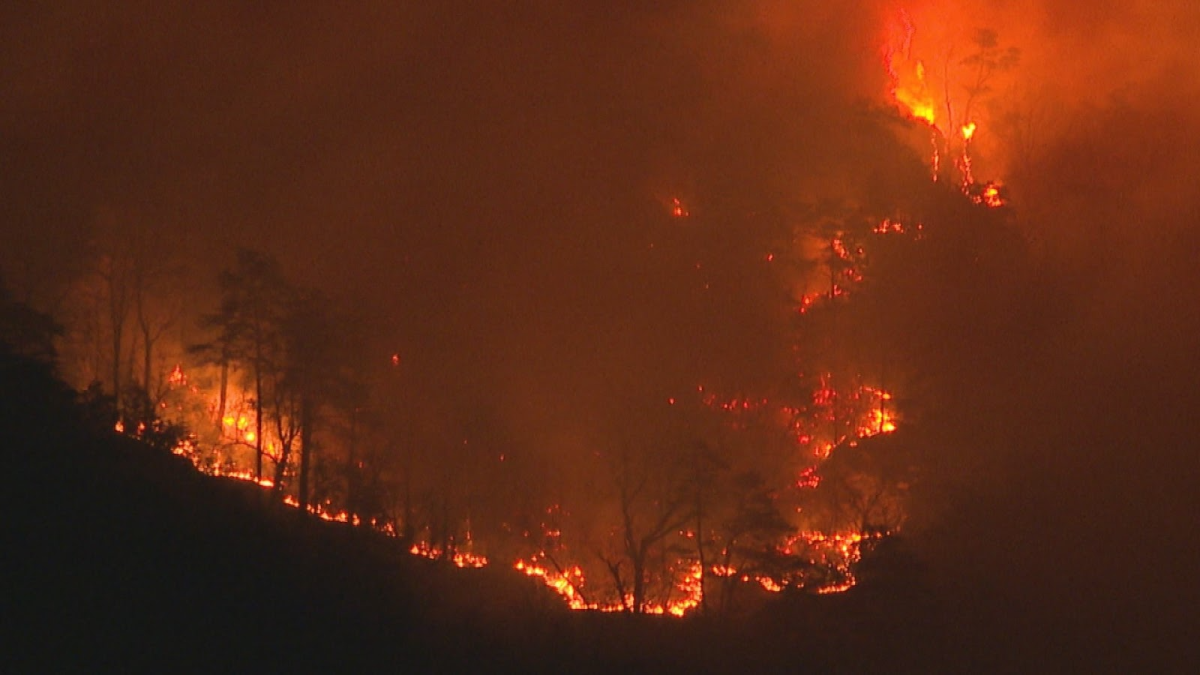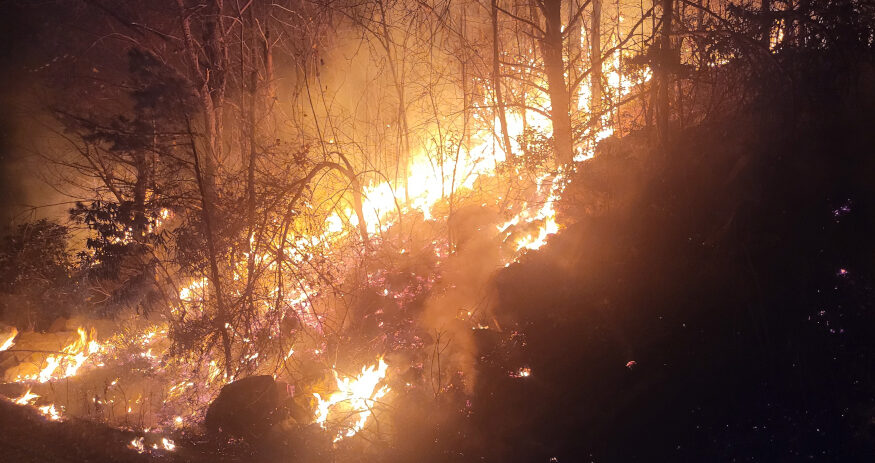A wildfire ignited in nearby Stokes County on Nov. 18 continues to burn.
The fire began in the Sauratown Mountains, a popular place for hiking, swimming and biking in the Piedmont Triad. The range is named after the indigenous Saura tribe that originally resided there and contains both Hanging Rock and Pilot Mountain State Park, which are popular hiking spots for Wake Forest students and the club Outdoor Pursuits.
Before the fire on the Sauratown Mountain chain ignited, a State of Emergency was already in effect for fires in the western part of the state. North Carolina Gov. Roy Cooper issued a State of Emergency on Nov. 8.
On Nov. 20, Cooper issued an executive order to include 16 other counties in the Piedmont Triad, including Forsyth County. The emergency area was expanded because the North Carolina Drought Management Advisory Council observed that the drought conditions this month are the most extreme the state has seen since 2017.
“The fires and the continued droughts across the state pose a risk to public health and safety, and we want to ensure that all residents and their property remain safe and protected,” Cooper said in a press release about the declaration.
This State of Emergency is in effect for 30 days, ending Dec. 20.
As of Sunday, the wildfire that started in the Sauratown Mountains had spread over 800 acres and was 90% contained. Wildfire containment is defined by how much of the fire has been encapsulated within a containment line that the fire will not cross.
Bradley Watson, a fire investigator at the City of Winston-Salem Fire Department, saw firsthand how hard it was to contain the fires.
“The fire itself is a hard task to control,” Watson said. “The easiest thing to do in situations such as this is to allow the fire to burn itself out. This is accomplished with backfires, which are fires set in coordination with crew placement to control burn areas, so the fire has no fuel once it reaches it. Also, cutting in fire lines well in advance of the fire where it’s much safer to do so helps to remove the fuel, [so] the fire will no longer be able to sustain burning.”
Further attempts to control the blaze were heavily impacted by the lack of rain and humidity, creating the dry conditions seen across western North Carolina. However, some rainfall that happened early Tuesday, Nov. 20, helped get a large part of the wildfire under control.
There were no reported injuries due to the fire. At times, more than 100 firefighters were working to control the wildfire, which was hard to combat due to restraints created by the rough terrain. The smaller fire department of Stokes County outsourced to neighboring fire departments, including those in Forsyth County.
“Though we are different, we are the same, and with that, acted in the same fashion to assist in the efforts to control the wildfire in question,” Watson said. “Our primary focus was to provide manpower and equipment for structural protection to the properties on and around Sauratown Mountain.”
Officials evacuated several private homes along Sauratown Mountain Road, as well as Mountain Youth Top Camp, a local summer camp. Camp Hanes, another popular summer camp for young Winston-Salem residents, was also in danger of evacuation but was deemed safe.

Jackie Sparnicht, a senior at Wake Forest and a Winston-Salem local, is an outdoor enthusiast who is sad to see nearby mountains ablaze, like they have been in the past.
“I remember when Pilot Mountain caught on fire a couple of years ago — that was really devastating for the community, and it’s sad to see that type of damage happen again,” Sparnicht said. “One of my favorite pastimes is spending time outdoors, and a lot of the time as a Winston-Salem resident you have to outsource to more rural areas like Stokes County.”
With incidents like the Weaver Fertilizer Plant fire in 2022 or the smoke that drifted into the east coast from the 2023 Canadian Wildfires, many residents are becoming increasingly concerned with exposure to poor air quality in Forsyth County.
“The largest health impact would be attributed to the smoke,” Watson said. “It is known to exacerbate health issues, mostly in regard to the respiratory system.…Other community and health issues could be runoff from firefighting operations, the logistics and management of people and equipment and the obvious effects of evacuations on the people and properties involved.”
Wildfires not only have serious strains on the local fire departments and personnel but also on the communities around them — especially those that have heavy tourism related to outdoor spaces, like state parks.
“I’m nervous as I feel like there’s been an uptick in fires around North Carolina recently — not just on behalf of the state parks but the communities around them,” Sparnicht said. “It’ll be interesting to see how further burn bans are implemented, and how other measures are put in as they don’t know what started the fires yet. Especially if that affects camping and hiking, which are some of the main attractions of the local state parks, and other privately owned businesses that cater towards the outdoorsy.”











